We want to thank all the people who attended the second meeting of the Wikimedia Colombia community, who shared their knowledge, hopes, dreams and knowledge with all the participants. Our total gratitude to David, Wilson, Omaira, Lina María, Leonardo, Héctor, Neima, María, Victoria, Julie, Antonio, Ana María, Lucy, Vladimir, Carlos, Juan Diego, Sara, María del Pilar, Leidy, Iván, Wilson, Joan, Libardo, Luis Enrique, Verónica, Jenny, John, Natalia, Adriana, Juan Pablo, Lorena, Juan Carlos, Angélica, Marcela, Sara, Lina María, Juliana and Andrés.
You can download the Wikidía 2023 report where you will find more details and images of our community meeting.
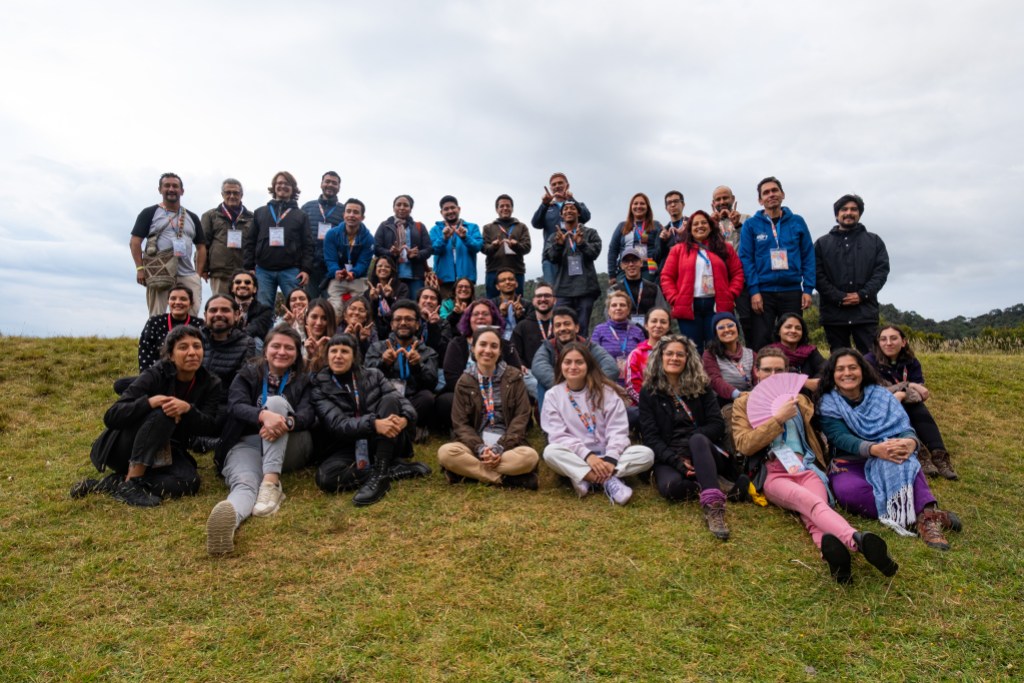
The meeting
Wikidía 2023 -The meeting of the Wikimedia community in Colombia- was possible thanks to the work of many hands that planned, managed, organized and took care of the needs that the community could have. They were days of work and sleepless nights so that these two days we could get to know each other, get closer and disoñar (the word ‘Disoñar’ is the result of combining ‘desing’ and ‘dreaming’ at the same time) together.
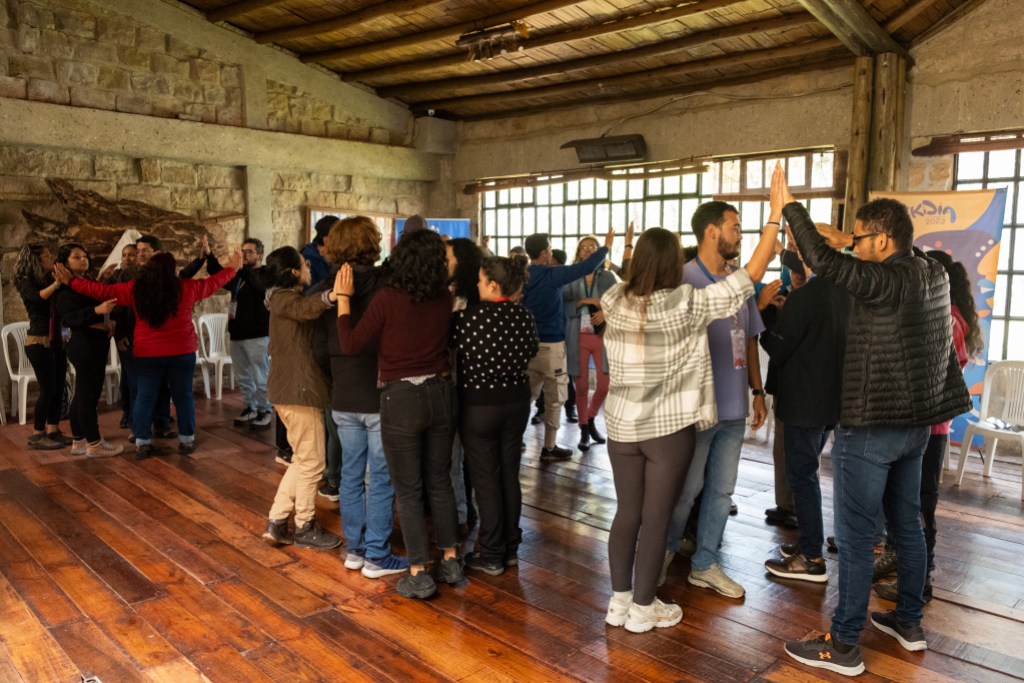
We found a total of 45 Wikimedians, 53% women and 47% men. Most of them were between 20 and 40 years old, although there were also people between 41 and 60 years old. Most of us live in the capital, Bogota, but there were also people from the Andean, Caribbean, Pacific and Amazon regions.
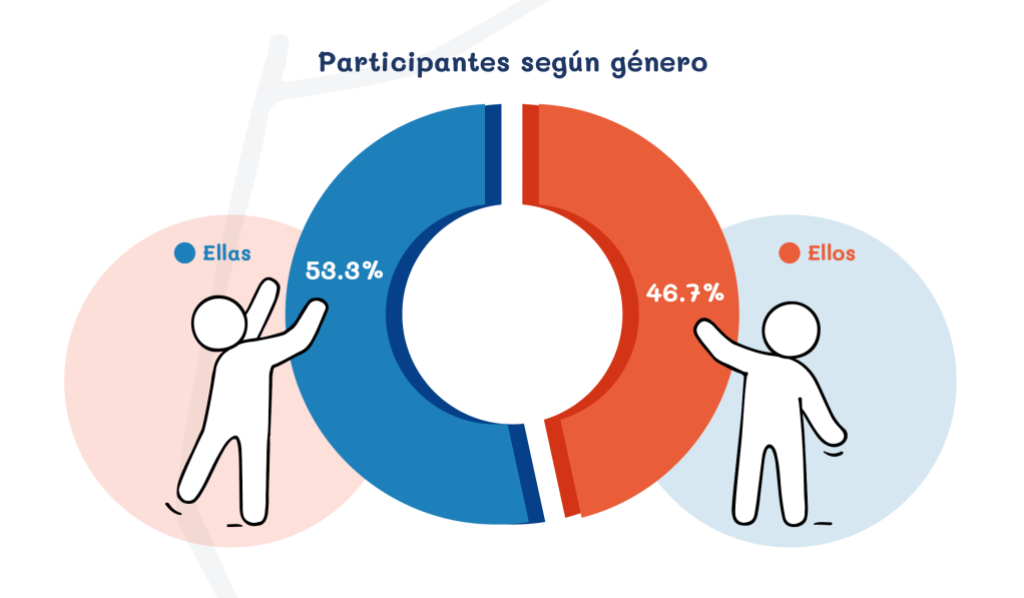
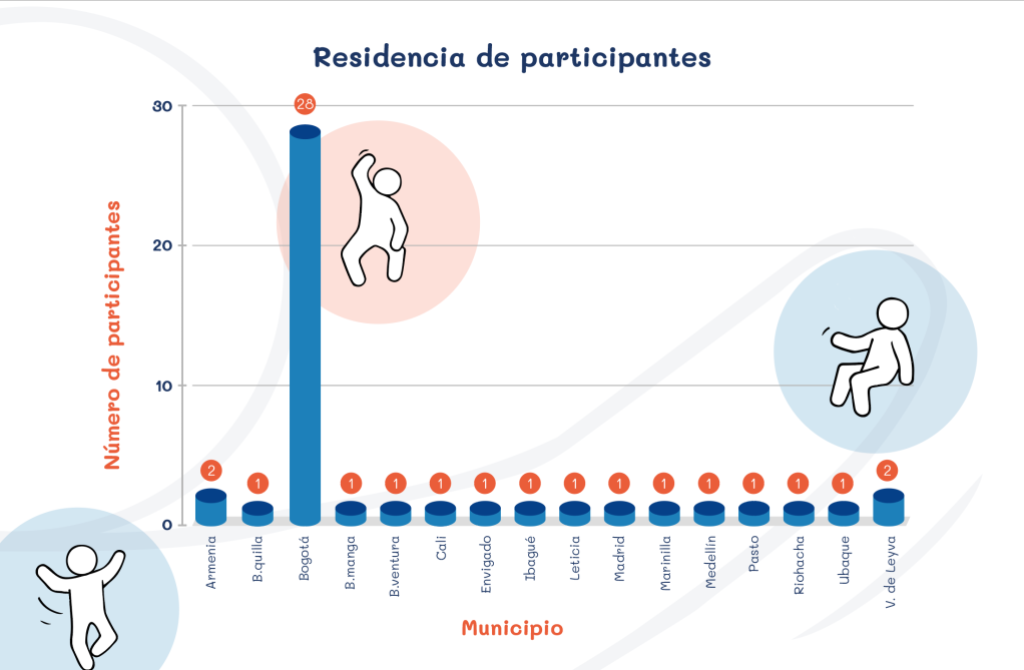
The meeting was held near the capital, so our wikimedistas who came from other cities arrived the night before in Bogota to a hotel where they could rest before starting our journey. On Saturday, August 23, we met at 6:00 am at the entrance of the hotel where they were staying and shared a first conversation over a cup of coffee. Some knew each other, others looked curiously at those faces that soon would no longer be strangers. After the coffee and giving a pause to the conversation, we started our trip to the Chicaque Park, which is located an hour and a half away from the city by land.
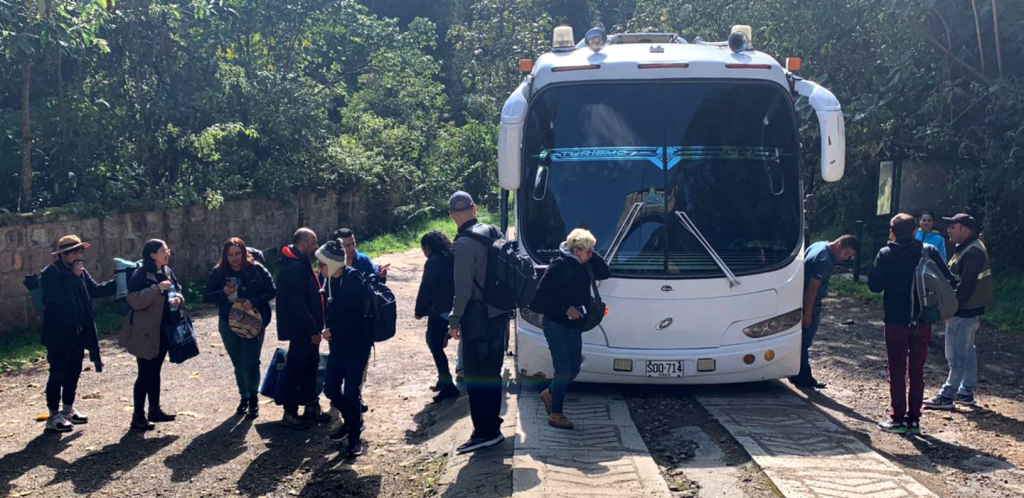
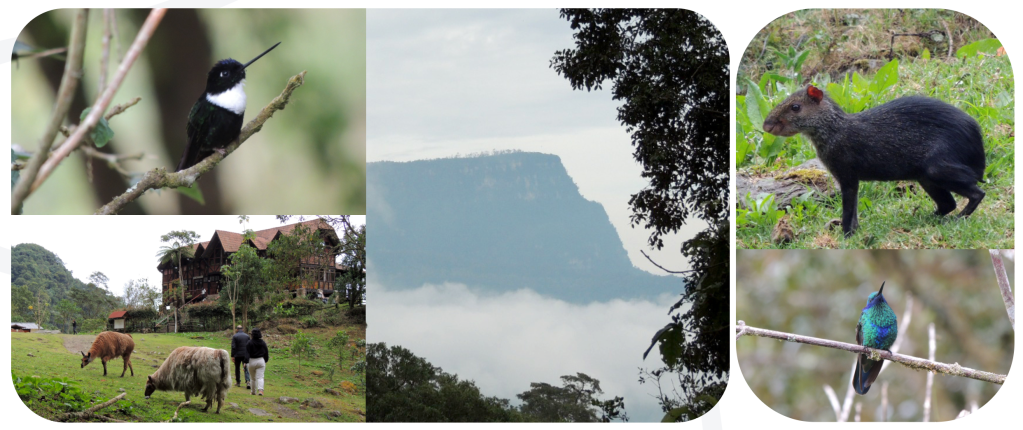
We arrived a little late but encouraged to meet, discuss and build what we want to do from WMCO. We had a hot chocolate breakfast with cheese and eggs to taste, which finished us off in the space. The workshop leaders, Veronica and Jenny from Talleristxs por la Justicia, made every effort to reorganize their agenda and accommodate our short delay. Encouraged and ready, we began our adventure.
Know us
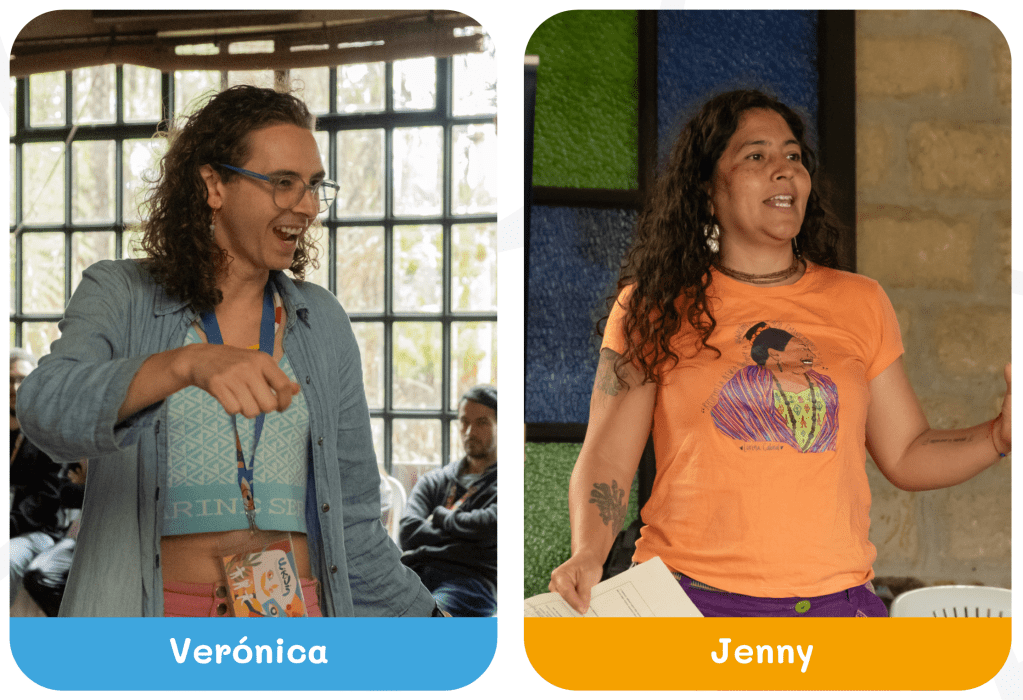
We began by introducing ourselves in dynamic ways proposed by the workshop facilitators, we did not only know each other’s names, from this we identified our interests and the purposes with which we came to the meeting. Little by little the small groups in which we arrived dispersed and grouped us into a heterogeneous mass of complicities.
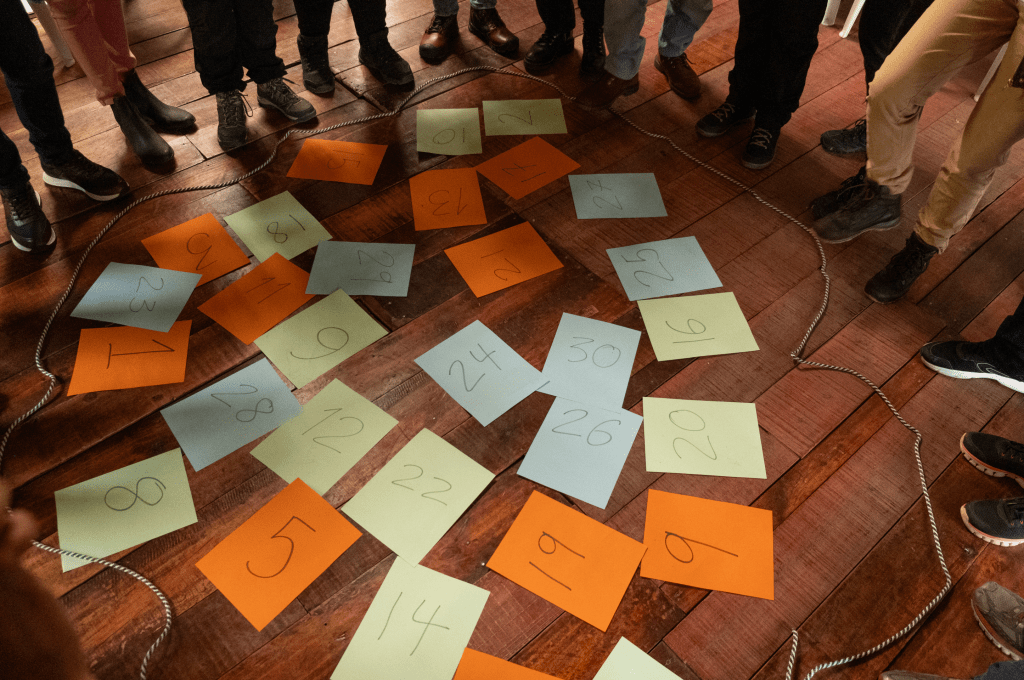
In the midst of the activities and games, we realized that competition did not encourage us as much as the pleasure of laughing, cooperating and enjoying each other’s company. This is evidenced by the activity evaluation survey in which 44% of the participants kept in their memory between 4 and 7 stories of their companions, stories of joy, struggle, courage and determination that began to generate bonds of affection, admiration and respect as well as the desire to work together.
Approach us
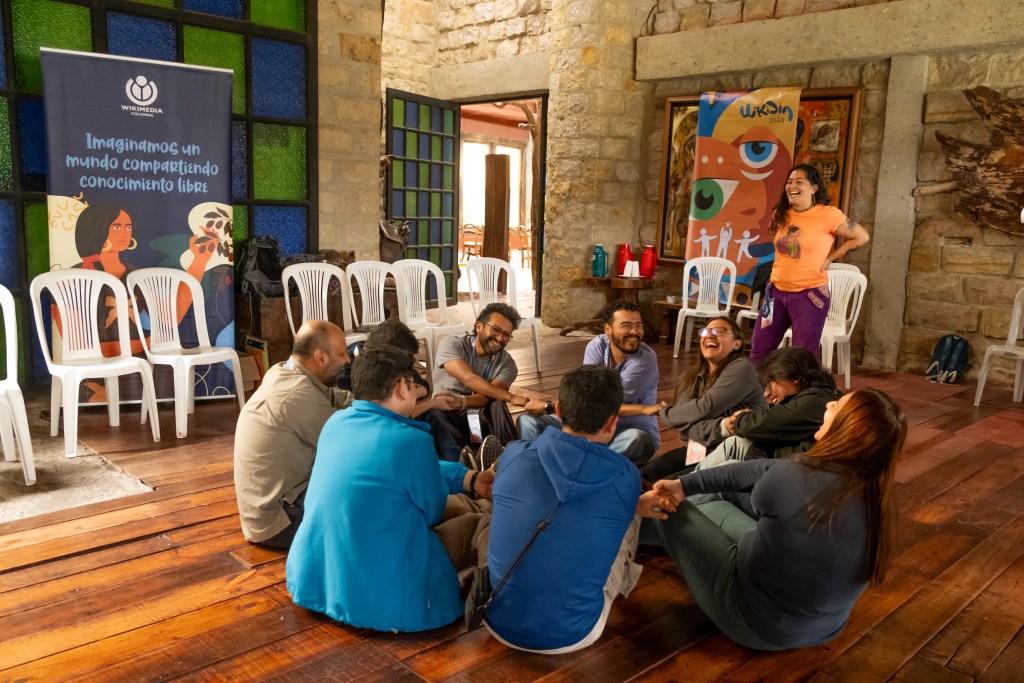
The workshop facilitators did their best to make each activity fun and practical, however, this did not detract from the reflection and projection of the community about what they want for Wikimedia in Colombia. We were sculpture, harmonic touches and block of sardines on a canvas, and with that, we got closer. But we were also critical, analytical and deep.
We discovered the four pillars that support this ecosystem in the country: territory, governance, sustainability and community knowledge. We consider of vital importance the meeting and local work, that is why projects such as Wikipeetia, Eleggua, Library and rurality are recognized as of great value for our Wikipedian work and we admire the character of some colleagues who work to preserve the culture, struggles and memories of some local communities. We applaud the feminine leaderships that position themselves and take the place they deserve and we learn from the constancy and patience that long term projects require.
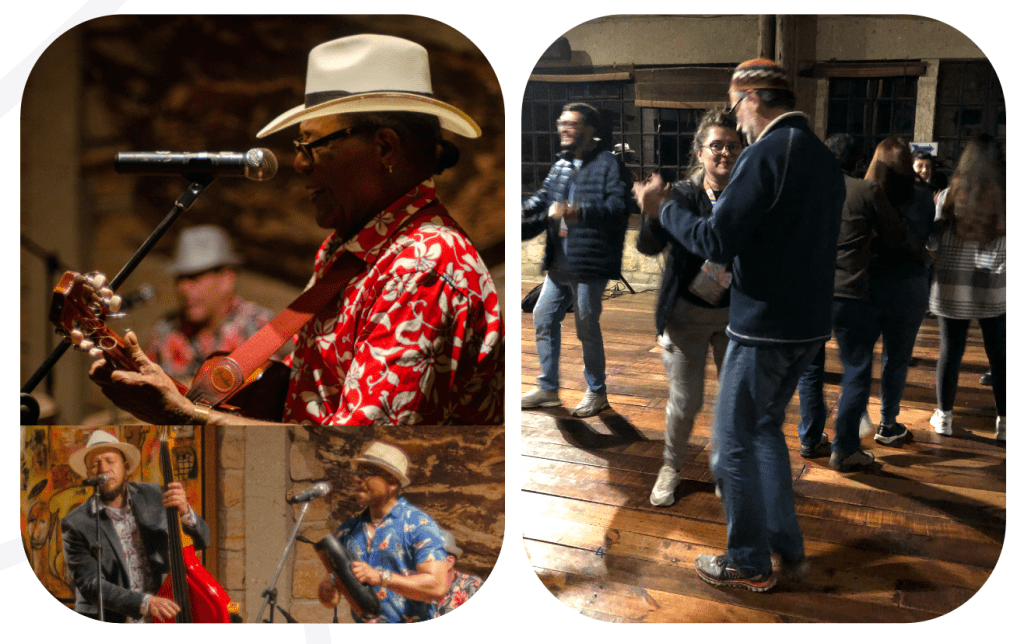
With the last glow of the sunset we said goodbye to our workshop facilitators and we were grateful for what they allowed us to discover. The evening breeze, the warmth of the dance and a good glass of wine allowed complicity and trust to take hold of us. To the rhythm of a Cuban son played live for the collective, we put an end to the sorrow and encouraged each other to dance together. We traveled the intricate downhill roads to get to the dormitories and campsites, shared a beer, anecdotes and projects, no longer in the formalism of the presentation but in the friendly chat between new friends. We created links between gardeners and artists, between hackers and activists, between singers and Wikipedians. And the dance happened. It stayed in our memory, it was repeated in the dawn and it was longed for in the return.
Disoñar together
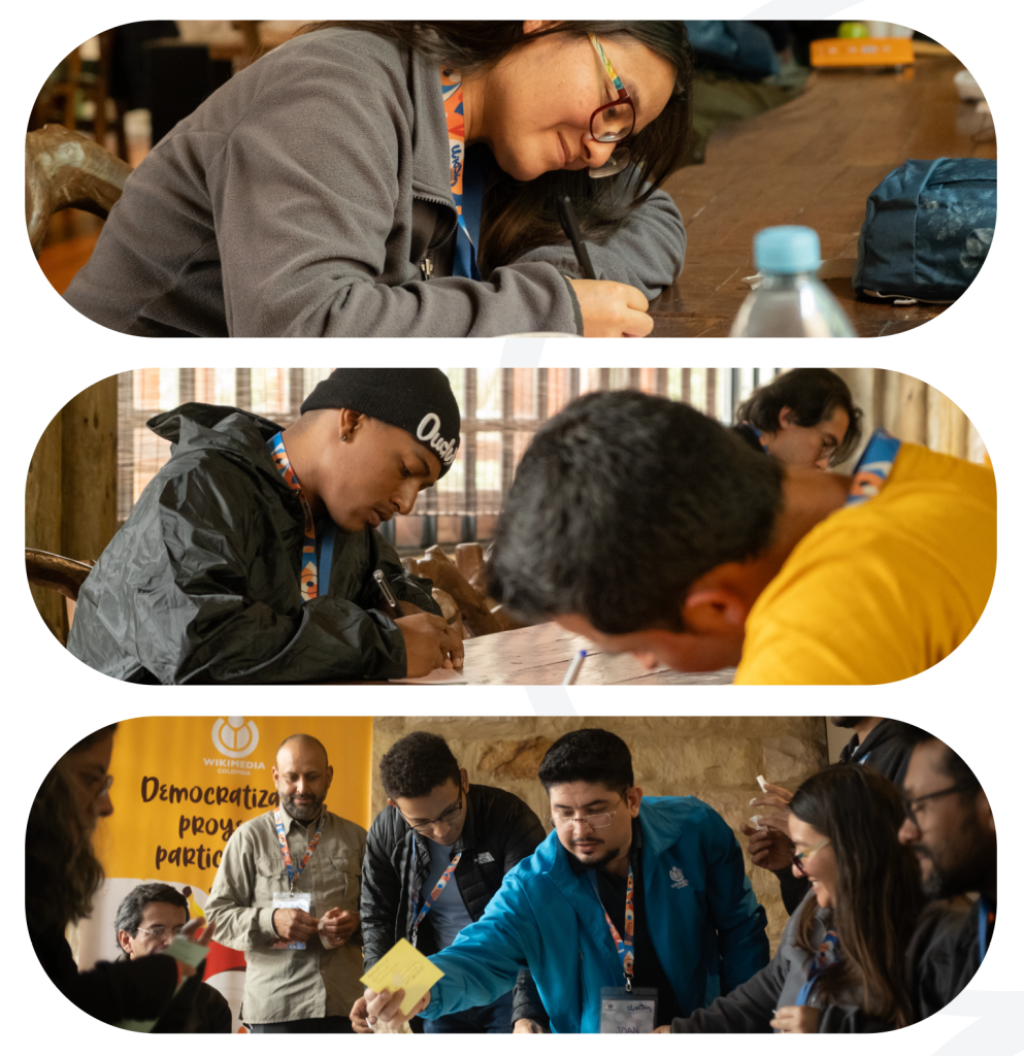
The accumulated fatigue of hard work had an effect on us and with the last conversations of the early morning we began to dream, after having designed. As a community we were encouraged to design and dream at the same time: disoñar.
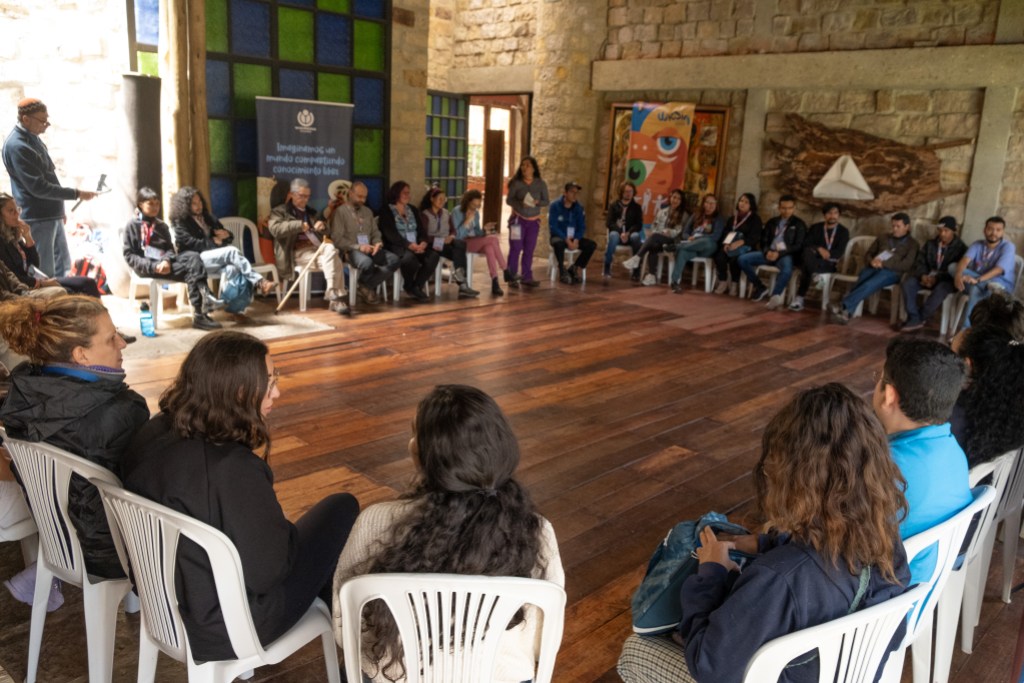
What we want and envision as a community is gathered in three big verbs: Learn, connect and do together. We want to strengthen the knowledge we have about some of the Wikimedia platforms, we also want to improve skills that facilitate digital and asynchronous work, we want to understand more deeply how the chapter works and, in general, the Wikimedia Foundation. On the other hand, we want to strengthen our links as a community, the relationship with allied organizations and attract more people to learn and explore all the possibilities of work that the ecosystem offers us. Finally, we have many projects in mind, from the simplest (but important) as improving and correcting articles on wikipedia to transform governance and achieve decentralization and a model in line with what we are and believe in the Wikimedia movement in Colombia. In between we have interests to teach, to increase the resources of the chapter and to strengthen the inclusion of marginalized communities.
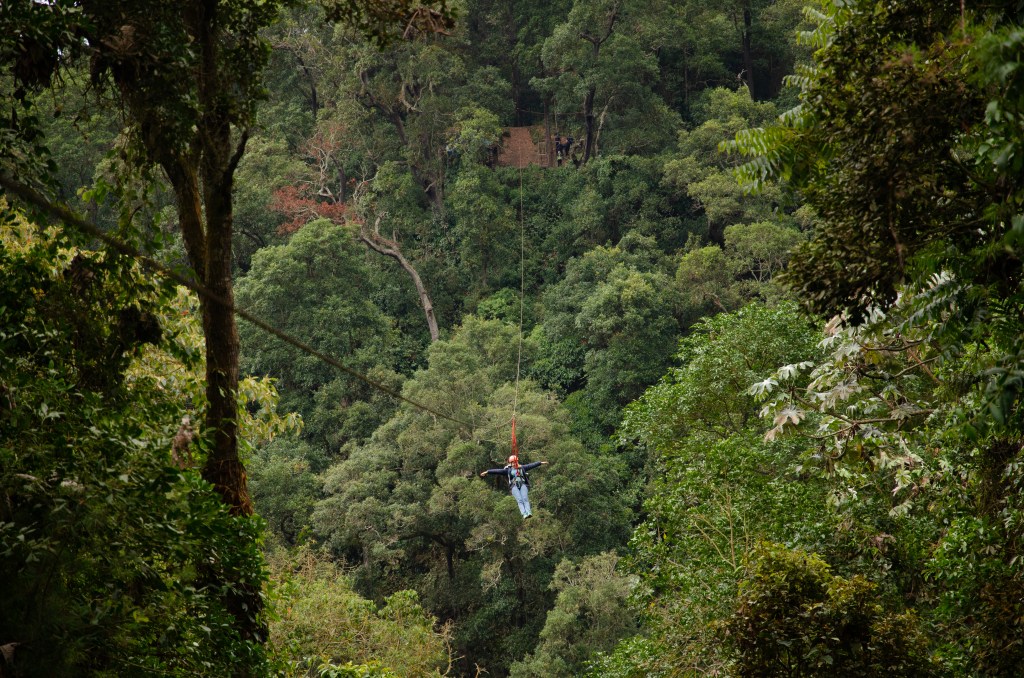
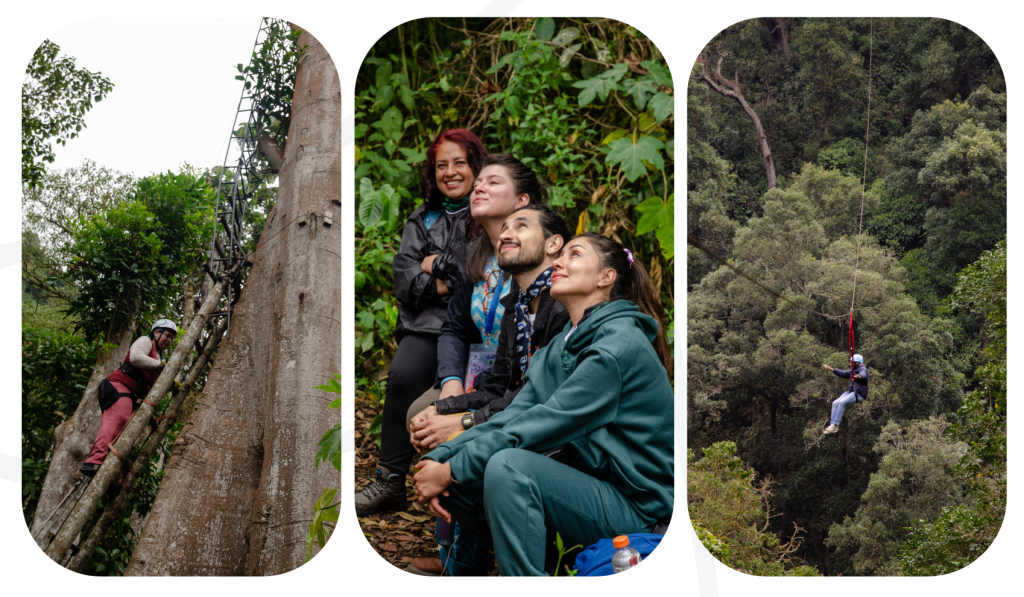
On the second day, we put those bonds we had built to the test. Many of us daredevils took the risk of climbing a tree or jumping off a zipline. Despite the fear, words of encouragement, jokes and support quelled the adrenaline of our feat. This is how this short adventure becomes a metaphor for what lies ahead. We understand the magnitude of our dreams and as reckless as it may seem, we know that we are together for a few more years on this road.
Finally, what is this thing called community?
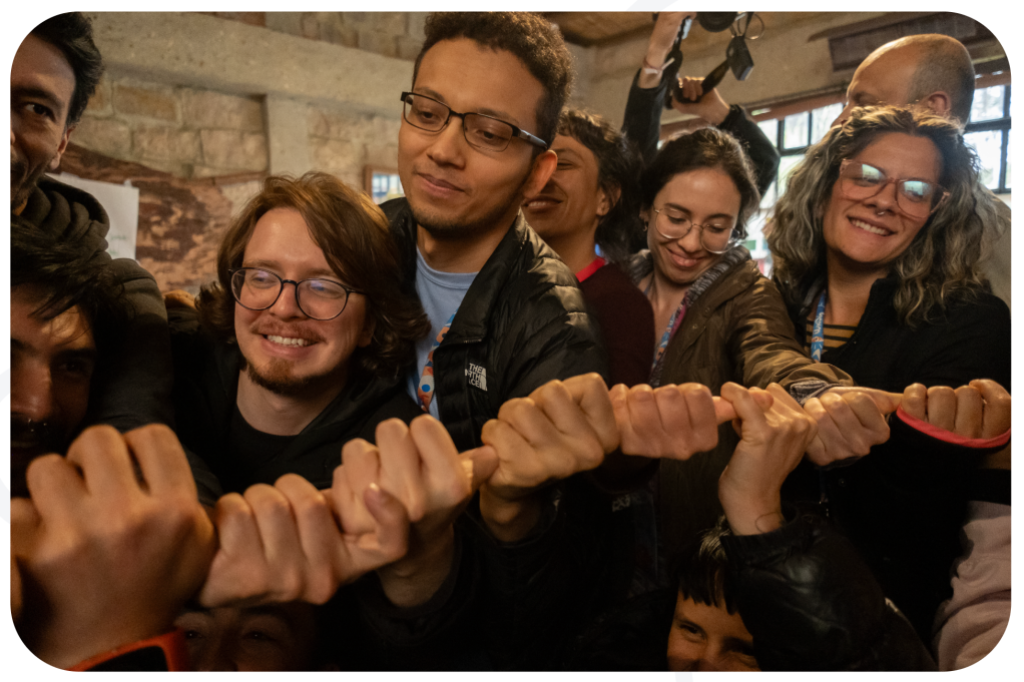
- We are a series of voices that come together to amplify a message Knowledge is for everyone! We want more people to have access to information, we build this incalculable world of words, images, references, terms, subjects and objects so that we can better understand the world around us, the visible one that generates curiosity and also still allows inequality.
- We find ourselves in the desire to make the autochthonous visible, to make ourselves disseminators of those forgotten, relegated and many times excluded figures. From our place of enunciation we want our traditions and the referents of all the latitudes of our country to be recognized, their voices, actions and symbolisms build us and their importance is such that they deserve a place.
- We are fulfilled by what we do together. We want to know each other, to be and to do with each other, build projects that enhance the Wikimedia ecosystem while enlarging our hearts by sharing.
- We firmly believe in decentralization and self-governance, that our voices have power and that our actions, when combined and interwoven, can build the future we long for.
- We take care of each other. Faced with all the situations we have experienced at different times in the history of the country and as an exercise of reconciliation and restoration with others and with ourselves, we are committed to promote and defend spaces free of abuse, racism, classism, and other violences. We embrace the safe space policies of the local and global community, but we also take care of the spaces, people, the word. We want our activities to be inclusive, convivial, transformative, horizontal and free of competition.
We share with you the Wikidía 2023 report where you will find more details and images of our community meeting.

Can you help us translate this article?
In order for this article to reach as many people as possible we would like your help. Can you translate this article to get the message out?
Start translation